Key sports law issues of 2016 & key cases to watch in 2017 – Central & South America
Tuesday, 17 January 2017As 2017 begins, we wanted to take a look back at 2016 and a look into the new year by providing insight into which were the key sports law cases of 2016 and sports law cases you may wish to follow in 2017.
In this feature, some of the leading sports lawyers in Central and South America share their views on what they think are the key sports law issues of 2016 and key sports law cases & developments to follow in 2017.
We would like to thank all of the contributors to this article for taking the time out of their busy schedules to share their views with us.
Featured experts:
- Mariana Rosignoli, Lawyer, S. Santos Rodrigues Sociedade de Advogados
- Ricardo de Buen Rodríguez, Lawyer, De Buen Rodríguez Abogados, S.C.
- Ariel Reck, Abogado Derecho Deportivo / Sports Lawyer
- Jonathan Rangel, IP Litigation Manager, Dumont Bergman Bider & Co, S.C.
- Roberto de Palma Barracco, Research Assistant, University of Oregon School of Law
- Gabriel Fonseca Vieira, Founding Partner, PVBT Advogados
- Pedro Fida, Partner, Bichara e Motta Advogados
- Marcos Motta, Founding Partner, Bichara e Motta Advogados
- Daniel Cravo Souza, Partner, Cravo, Pastl and Balbuena Associated Attorneys
We hope you enjoy the article. If you think there’s anything you would have liked to have seen be mentioned please feel free to tweet us @LawInSport or email us with your suggestions at
Mariana Rosignoli
Lawyer, S. Santos Rodrigues Sociedade de Advogados
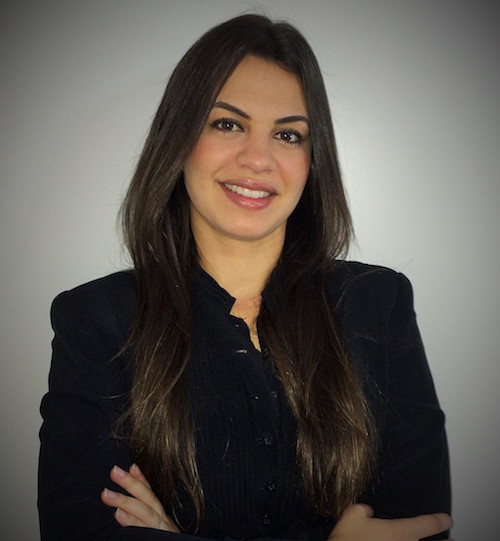 Issue of 2016:
Issue of 2016:
After the involvement of officials from CONCACAF, CONMEBOL and the Brazilian Football Confederation in corruption scandals in football´s world and also cases of corruption in other sports modalities in 2016, the themes of Sports Law were certainty, integrity and good governance.
In addition, with scandals involving doping and clean sport in several countries and in the Olympics in Rio de Janeiro, the issue has also become one of the key themes for the region.
What to watch in 2017:
Following the investigations and findings of corruption and mismanagement, integrity and good governance will be key issues in 2017 in the region. The changes in the legal framework of countries and in the statutes, regulations and conduct of sports organizations will also be visible.
On the subject of doping, the changes will also be noticed in order to reach specific standards. In Brazil, for example, legislation has been amended to create an Anti-Doping Court conducted by the national authority, which will cover many sports modalities.
Ricardo de Buen Rodríguez
Lawyer, De Buen Rodríguez Abogados, S.C.
Issues of 2016:
The organization of Copa America Centenario by two confederations.
In June 2016, the Copa America Centenario took place in different cities of the USA. The the South American Football Confederation (CONMEBOL) and the Confederation of North, Central American and Caribbean Association Football (CONCACAF) joined forces to organize the first oficial tournament with the participation of national teams of both confederations. They created specific Regulations for the Copa America Centenario and they managed to have an organizing committee with the participation of officials from both Confederations. The organization was, from a legal point of view, a success. We do not know if it is the emerging of a new and regular real continental cup but it was a example of the legal possibility of organizing a bi- confederational event.
The CONCACAF´S reforms.
Speaking about these confederations, CONCACAF, after the scandal that involved some of its officials and the recommendation from FIFA to make some structural changes, finally created new statutes trying to achieve a good governance and transparency. They created new governing bodies and new transparency mechanisms, following the same line that FIFA did.
The fight against doping.
Various National Anti-doping Organizations of Central and South America were under the scrutiny of WADA, due to the presumed non compliance of the WADA Code. In the case of Mexico, almost at the end of the year, WADA suspended the accreditation to the Mexico City laboratory. One of the events that preceded this suspension was the Paola Pliego case, a Mexican fencer suspended by the International Fencing Federation, a few days before going to the Olympic Games, based in a supposed adverse analytical finding determined by the Mexican Laboratory, that and the end was proven to be false.
What to watch in 2017:
2017 will be for sure an interesting year for legal issues in Central and South America. We will find out if the reforms performed by CONCACAF are really successful in achieving good governance and transparency or not. Looking South, the regularization of an important Football Federation as the Argentinian may take place, and it will be interesting to find out how it is finally done. In Mexico, Rafael Marquez former Barcelona and Monaco´s player, is expressing the necessity of creating a new players union. We will see if it is for real or not.
Regarding the fight against doping, it will be important to see if the different National Antidoping Associations in the sights of WADA, finally achieve good results in reforming the respective regulations and organization to have a reliable antidoping system all around the continent.
The fight against match fixing in sports, is a topic that has not been taken seriously by almost all the governments and sports federations in Central and South America. We hope that 2017 is the year of a real development in this issue.
Ariel Reck
Abogado Derecho Deportivo / Sports Lawyer
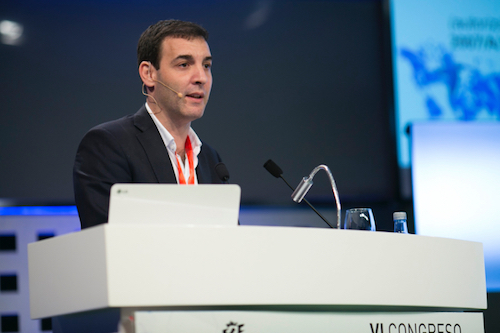
Issue of 2016:
The key sports law issue in 2016 was the appointment by FIFA of a normalization committee for the Argentine Football Association
Following several incidents (including a presidential election that ended in a 38-38 tie with only 75 voters) and as a new chapter in the political crisis triggered after the death of Julio Grondona and the FIFA-gate the Bureau of the FIFA Council decided on 24 June 2016 to appoint a normalization committee for the Argentine Football Association (AFA) in accordance with art. 8 par. 2 of the FIFA Statutes.
All this in the middle of an ongoing criminal investigation related to the misapplication of the state funds paid by the Argentine government in the framework of the “football for all” program and in a dispute between the first division clubs and the rest of the categories for the introduction of a professional league as a separate entity.
The committee, composed by four members and chaired by the president of club Belgrano de Córdoba, Mr. Armando Pérez, is in charge of running the daily affairs of the AFA and has the main objective of revising the AFA statutes in order to bring them in line with the current FIFA Standard Statutes, and organising elections accordingly by 30 June 2017 at the latest. For the election, the normalization committee will act as electoral committee and none of its members will be eligible for any of the open positions.
FIFA and Conmebol held a workshop at the end of 2016 in Buenos Aires to draft the new statutes and one week ago the schedule for the approval of the statutes and the election was released: The assembly will take place March 14, 2017 and the presidential election April 28, 2017.
What to watch in 2017:
The key sports law issue to watch in 2017 will be the development of the reform process at Conmebol
By the end of 2016 Conmebol approved a big reform of its structure and regulations as a consequence of the FIFA-gate that ended with almost all of the main officials indicted, including 3 former presidents.
The new presidents of the member federations elected the Paraguayan Dominguez to chair the confederation and agreed on a structural reform. The new Statutes and regulations were approved in 2016 but the changes will start this year.
The reform includes a restructuration of the continental championships Copa Libertadores and Copa Sudamericana into a format and calendar similar to the UEFA Champions League and Europa League. This change brought the first crisis already with the withdrawal of the Mexican teams from the competition. Mexico was playing as “guest” for many years and was a strong market for Conmebol in terms of tv rights, but the new calendar overlaped with other competitions (mainly the Concacaf champions league) and the Federation decided to abandon the south american tournaments.
Conmebol also introduced a new licensing system imposing also its progressive inclusion at national level. The licensing system will oblige clubs that want to enter the continental competitions to cancel every overdue payables, to foster youth divisions and female football and to hire qualified trainers among other obligations.
Other relevant changes are the designation of new committees and disciplinary organs, including a new ethics committee and the confirmation of the Court of Arbitration for Sport as the only appeal stage for every kind of decision (Under the previous statutes an arbitral body with seat in Paraguay the Court of Arbitration for South American Football was appointed as appeal body for disciplinary disputes).
The South American clubs on their side created a new association, the “Liga Sudamericana de Clubes” (the biggest clubs from the region are behind this association, but the participation of brazilian sides is still in doubt). The association operates as a sort of “south american ECA” and its first claim was the raise of the prize money for the clubs in the Conmebol tournaments. Contrary to the ECA the Liga Sudamericana has not yet a MoU with the Confederation.
Jonathan Rangel
IP Litigation Manager, Dumont Bergman Bider & Co, S.C.
 Issue of 2016:
Issue of 2016:
Undoubtedly, the sports event that marked 2016 was the Olympic Games celebrated in Rio de Janeiro, Brazil.
For Central and South America, in the matter of Sports Law, we may highlight the case of the Mexican fencer Paola Pliego, who was excluded from the Olympic competition due to an alleged doping (due to having taken "modafinil", a stimulant used to treat narcolepsy). After the test was applied by the laboratory operated by the Mexico’s National Commission on Physical Culture and Sports (CONADE) and accredited by the World Anti-Doping Agency, 540 nanograms of such substance were detected.
However, a second test ordered by the International Fencing Federation (FIA) reverted that decision. No “modafinil” was found this time. Now, Paola will not be sanctioned, but having lost the chance to be part of such Olympic competition is something that will never be mended.
What to watch in 2017:
Central and South America have been the scenario of several changes in terms of Politics and Economy during last year, and according to some experts, 2017 will not be the exception. Unfortunately, the relevance of such changes always has an effect over other sectors, such as Sports.
On Sports law we should point out the actual need of a Sports Policy. Among others, there have been too many cases in which Governments do not offer any kind of support to their athletes. Nonetheless, they always try to obtain the resources from other means.
Despite the delicate situation faced by various countries in the region, 2017 can be a great opportunity for the creation of a Sports Policy to establish the minimum necessary standards in order to guarantee our athletes the legal security, infrastructure, and financing required to compete and therefore achieve the objectives that both, they and their Government set.
Roberto de Palma Barracco
Research Assistant, University of Oregon School of Law
 Issue of 2016:
Issue of 2016:
The year of 2016 was a busy year for Brazil in general, and sports law was no exception to it. From the debut of the PROFUT, known as the financial fair play law of Brazilian soccer, to the proposal of several new bills, such as a new one aimed specifically for soccer, sports law in Brazil underwent pushes for major changes during the end of its Olympic cycle that saw the U-23 soccer national team winning its first Olympic gold medal, while other sports failed to reach the podium - which arguably reflects the fact that sports law in Brazil is still tailored for soccer, reality that could change with another bill aimed to professionalize sports as a whole. Consequently, last year can be seen as a mop up of the floor in which sports law in Brazil is set up.
What to watch in 2017:
Building on this idea, it is certain that this year presents itself as one to watch as a third bill, focused on soccer and addressing the modernization of Brazilian sports, gains momentum; it would allow the transformation of sport teams into sorts of a joint-stock company clearing up a new path to those that opt in to receive money from investors, while arguably bringing greater transparency to the finances of sport in Brazil. Also, it is noteworthy to mention the creation of the CNRD/CBF, the national committee for dispute resolution of the Brazilian Soccer Confederation; a landmark that is likely to bring changes to other national sports confederations, as well as serving as a influencer to how both sports bills will be enacted by Brazilian lawmakers. Lastly, another key point to watch this year is a possible change in the Brazilian labor law that would give more room to the negotiation of comprehensive CBAs between unions and employers representatives, which could alter the landscape of sports related employment law as result. That said 2017 enters the scene as the harbinger of a new cycle, which could lead to new horizons of Brazilian sports, and not only its sports law.
Gabriel Fonseca Vieira
Founding Partner, PVBT Advogados
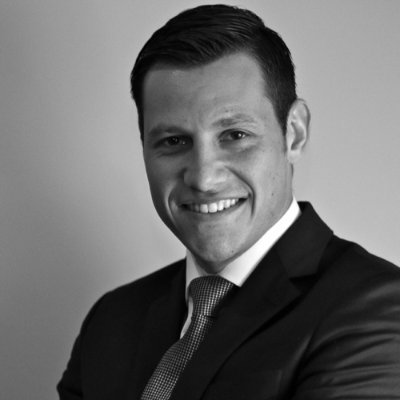 Issue of 2016:
Issue of 2016:
Definitely the main issue in 2016 has been the TPO ban and the way the South American clubs have to reinvent themselves to work without it. As most of the Brazilian clubs are progressing with compliance frameworks, those clubs are not using TPO anymore and expend only the cash flow to buy new players in the football market.
Therefore, it is important to say that the quality and the football level has decreased and the main football players don’t come back anymore to South America in a normal situation, apart of being more than 30 years old and think on finishing the career in them countries.
What to watch in 2017:
For 2017 I bet on football compliance. As the clubs, agents and players are being investigated for national associations and FIFA, the stakeholders must step in line with the regulations and understand that if not do so, consequences will have.
Pedro Fida
Partner, Bichara e Motta Advogados
Marcos Motta
Founding Partner, Bichara e Motta Advogados
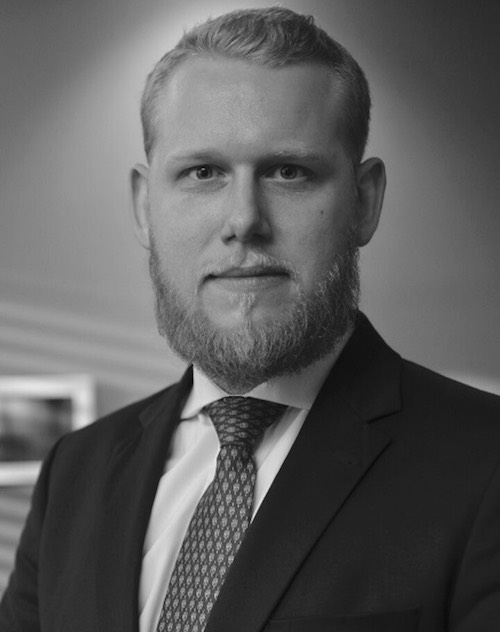
Issue of 2016:
During 2016, the soccer market in South America has seen a tougher control and monitoring of bridge transfers by FIFA, especially in Brazil, Uruguay and Argentina. In Brazil, the Brazilian Football Confederation (CBF) has implemented regulations and monitoring mechanisms over these operations and applied its up-to-date rules to cease transfers deprived from any sporting nature, as well as sanction the parties involved.
Brazilian football has also seen a major change in its dispute resolution mechanism with the creation with a two-step structure for solving disputes between members and affiliates of CBF, especially clubs, players and intermediaries. The first instance body issues collegiate decisions which are then appealable to an independent arbitral institution in Brazil, i.e. Brazilian Center of Mediation and Arbitration (CBMA).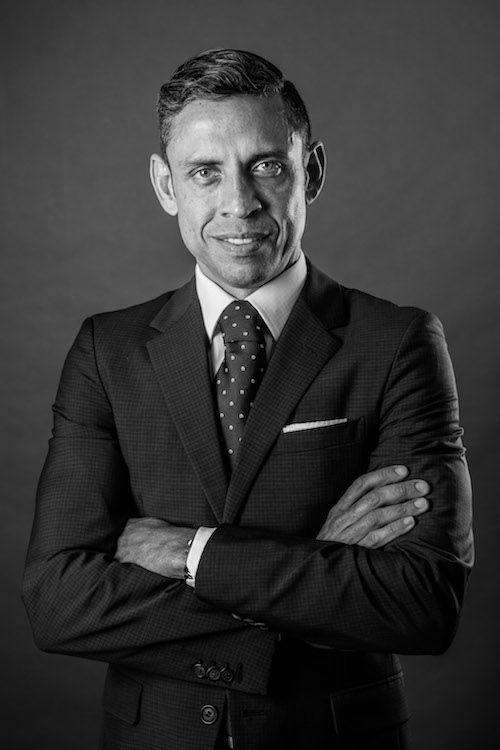
Moreover, 2016 was the year of the Rio de Janeiro Summer Olympic Games, which heated the South American region. Unfortunately, in terms of Anti-Doping policy and control, Central and South America have not been successful as expected. Weeks before the Rio 2016 Olympic Games started, Rio WADA-accredited laboratory lost its accreditation for not being compliant with the applicable regulations and standards of WADA, but on 20 July 2016, the Rio Laboratory was reinstated in time for the Rio Games. However, following the Games, WADA Independent Observers issued a Report identifying several flaws and non-compliant procedures adopted during and before the Rio Games. In October 2016, the WADA Compliance Review Committee declared Brazil non-compliant with the 2015 WADA Code.
In Mexico, its WADA-accredited laboratory CONADE has been put under suspicion after a case of false doping involving a Mexican fencer who was later exonerated by FIE and WADA.
What to watch in 2017:
In 2017, South American football will see the implementation of a brand new licensing system coordinated by CONMEBOL, and aimed at promoting the financial fair-play throughout clubs. The Brazilian Football Confederation (CBF) will also finalize and implement its national system of clubs’ licensing.
Moreover, national football associations and some National Olympic Committees throughout South America have been promoting a series of reforms and adopting compliance measures in order to adapt themselves to international standards of accountancy, anti-corruption and compliance rules and legislations.
In regards to Anti-Doping, Brazil and its NADO will have the challenge to become compliant again with the 2015 WADA Code, and other countries in the region tend to engage in more effective Anti-Doping campaigns throughout South and Central America.
Daniel Cravo Souza
Partner, Cravo, Pastl and Balbuena Associated Attorneys
Issue of 2016:
At the macro level, without a doubt, we have the issue of integrity, transparency and, why not, football management permissibility in South and Central America, both within their respective confederations as a significant part of national associations that constitute them. The huge (negative) impact generated by the arrests of important football officials from Central and South America in the infamous context of the so-called FIFA Scandal have given rise to the open willingness of the World Football's Supreme Entity to attack the practices and conduct that gave rise to the offensive of the US authorities (and then, multinational ones). However, it appears that, to date, in general, we cannot identify a substantial and concrete improvement of control (both internal and external) on the institutions that govern "the game" in this part of the globe. We must hope that 2017 is a year of progress in this direction, and not a step back or stagnation. In any case, it can be presumed that there are still some skeletons to be unearthed ...
What to watch in 2017:
I understand that the recent easing by CAS of the sentence imposed by FIFA to Barcelona regarding the alleged violation of protection of minor’s rules is the harbinger of the opening of a new round on the subject, whose developments can be seen in more than one front. On the one hand, the limitations imposed by FIFA are put in check, considering that, in many situations, they can represent the extinction of a lifetime only chance for a humble origin player to change his/her fate. After all, wouldn't this be a relevant social purpose of the sport? On the other, however, there is a blatant and undisguised conflict of interest between the markets known as exporters and fosters (e.g., South American and African countries) and buyer markets (quintessentially European countries, but also other emerging ones such as Asia). It is evident that the relativization of rules will facilitate the action of clubs and better portioned markets to seek players at an even younger age and at a lower price, with lower income clubs and markets becoming even more vulnerable. Another issue that surely will remain in the sports legal agenda will be doping. The proven failures in control, especially in high-level competitions, in which lack of investment to the task is not an acceptable excuse - illustrated and exposed so eloquently by the humiliating episode involving Russian athletes in the last Olympic Games - require deep reflection, perhaps with a redesign of its regulations and oversight bodies. Finally, the debate on TPO/economic rights may eventually "run out" and return to the top of the list if there is any decision that affects the policy currently dictated by UEFA and FIFA, which resulted in the ban of this kind of practice/business, and whereas, however, as we know, is still practiced through the use of other legal and business guises in certain countries. In particular, we hope that there is some judicial manifestation under the claim put forward by the Spanish and Portuguese Federations with the European authority.
- Anti-Corruption Anti-Doping Argentina Association of Football Agents (AFA) Brazil Brazilian Center of Mediation and Arbitration (CBMA) Brazilian Football Association Central America CONCACAF Confederación Sulamericana de Fútbol (CONMEBOL) Copa América Centerario Fencing FIFA Football Governance Olympic Paralympic Regulation South America World Anti-Doping Agency (WADA) World Anti-Doping Code (WADC)

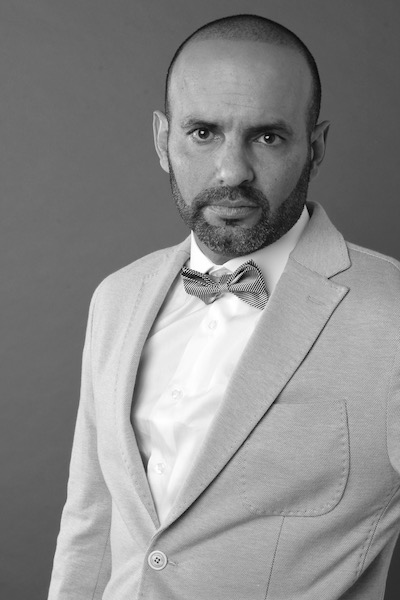

 Global Summit 2024
Global Summit 2024